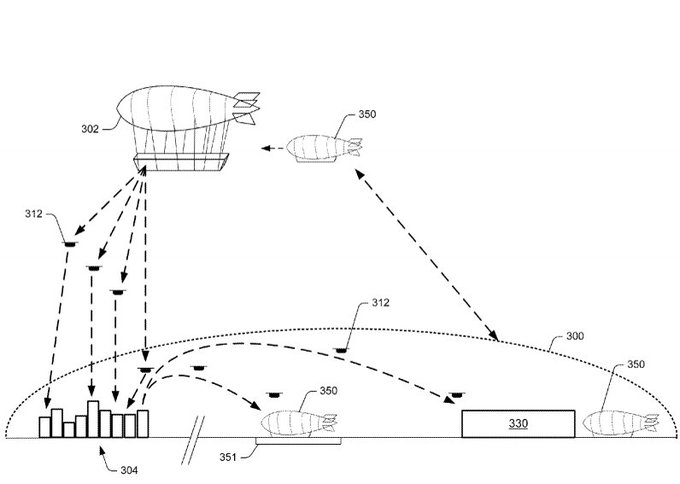Amazon is considering using blimps as huge airborne warehouses
REUTERS/John Hamilton/DVIDS/Handout
Amazon has already started using drones to deliver products to its customers, albeit on a very small scale.
However, there's one small problem with drone deliveries as it stands: launching drones from the ground and flying them to people's houses requires a considerable amount of energy.
In order to get round this potential issue, Amazon is looking at storing products at altitude in huge floating airships — described by Amazon as "airborne fulfillment centers" — and a network of drones to essentially float items down to people.
The company filed a patent for the idea on December 22 that was discovered by CB Insight's analyst Zoe Leavitt on Wednesday.
In the abstract of the patent filing, Amazon writes: "As the UAVs descend, they can navigate horizontally toward a user specified delivery location using little to no power, other than to stabilize the UAV and/or guide the direction of descent."
This diagram shows a UAV delivery process that involves an airborne fulfilment centre (AFC).Amazon
Amazon also writes in the patent: "Described is an airborne fulfillment center ("AFC") and the use of unmanned aerial vehicles ('UAV') to deliver items from the AFC to users. For example, the AFC may be an airship that remains at a high altitude (e.g., 45,000 feet) and UAVs with ordered items may be deployed from the AFC to deliver ordered items to user designated delivery locations."
I just unearthed the Death Star of #ecommerce via @cbinsights... AMZN patent for airborne warehouses at 45K ft spitting out delivery drones
A number of smaller airships could be used to float Amazon products and drones up to the larger AFC. Floating drones up in this way would help to save their batteries.
"Shuttles (smaller airships) may be used to replenish the AFC with inventory, UAVs, supplies, fuel, etc," Amazon writes. "Likewise, the shuttles may be utilized to transport workers to and from the AFC."
Amazon would likely have to overcome a number of regulatory hurdles before governments would permit it to deliver items in the way that it envisions.


No comments:
Post a Comment